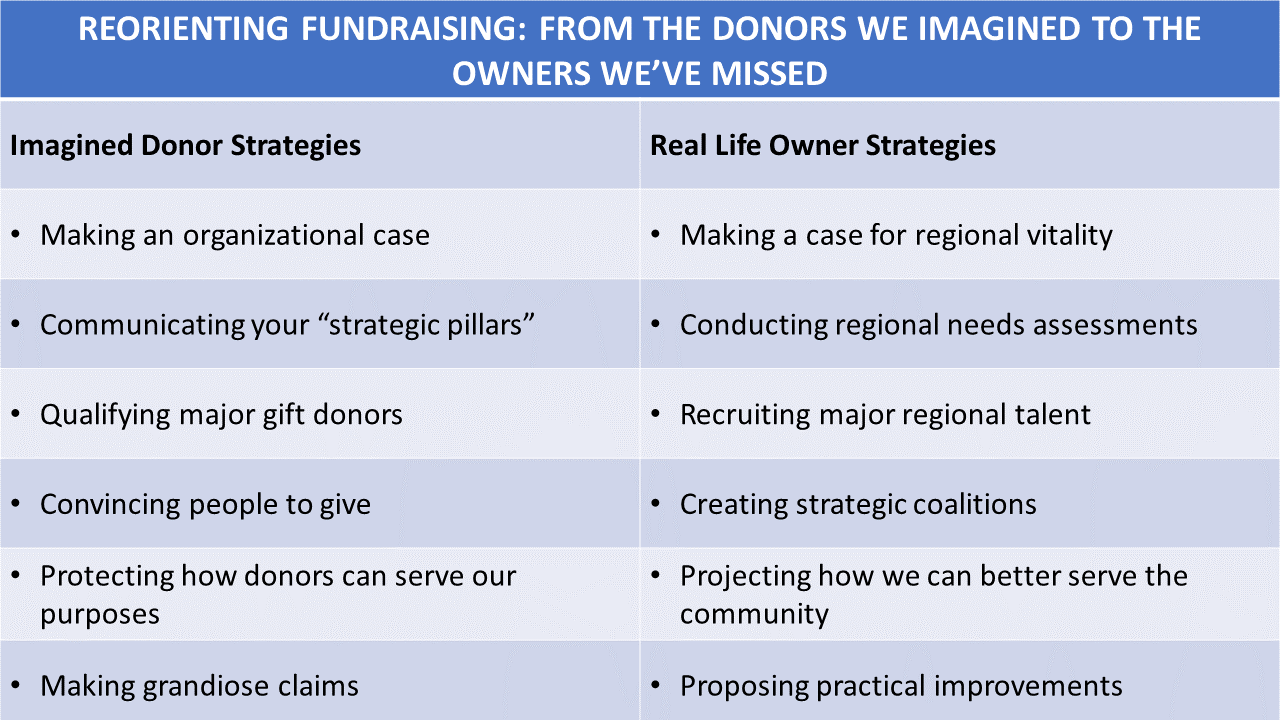We use cookies to ensure that we give you the best experience on our website. By continuing to use this site, you agree to our use of cookies in accordance with our Privacy Policy.
 Login
Login
Your Role
Challenges You Face
results
Learn
Resources
Company
How Stereotyping Wealth Leads to Missed Fundraising Opportunities


When you think about the wealthiest of earners in the U.S., those who fall into the top 0.1 percent, who comes to mind? For most, it’s the high-tech or dot.com billionaires.
A study done by four Berkeley economists, however, reveals how fact differs from perception. Their research shows that the typical “rich American” – one of 144,000 who earn more than $1.588 million a year – are owners of regional businesses such as “auto dealer” or “beverage distributor.” They own businesses that respond to consumer demand and, therefore, succeed over time. Because they have such a sound business model, they rarely sell. They put down roots in their community.
How many in the fundraising field pay due attention to these kinds of businesses and the remarkable, self-made people who created them? How often do we assume those in more glamorous businesses are making more money and therefore more worthy of our attention? How many colleges and universities proudly identify these owners as their most successful graduates or recruit them to their boards, much less seek their advice or approach them to create internships for their students?
The way people make money affects the way they judge other businesses including nonprofits.
How must many of these owners, whose businesses are based on customer satisfaction, view the way we seek to engage them or steward their gifts? Do they think we run our businesses well? Do they wonder why we so rarely recruit them for their proven talents – proven by the sustained success and profitability of their businesses?
The way people make money affects the way they give money.
What we write cases for support or major gift proposals do we ask if they will stand up to the scrutiny of owners much less appeal to their practical orientation? When we speak or our needs or attempt to raise money to balance our annual budgets, do we realize we’re undercutting our credibility in their minds? Why would they want to make significant contributions to a business struggling with solvency?
The fact that so many of the most successful business are regional means their owners have a real stake in the community and a deep understanding of regional consumer preferences, attributes that would seem to make them ideal board members and advisers.
The chart below suggests way we can adapt our approaches to appeal to those who have the means to make the greatest differences.

Jim Langley is the president of Langley Innovations. Langley Innovations provides a range of services to its clients to help them understand the cultural underpinnings of philanthropy and the psychology of donors and, with that knowledge, to develop the most effective strategies and tactics to build broader and more lasting communities of support. Jim has authored numerous books including his most recent book, The Future of Fundraising: Adapting to New Philanthropic Realities, published by Academic Impressions in 2020.
Related Resources:
- Webinar: 4-Step Process for “Reimagining Fundraising Operations”
- 7 reasons why wealth screening your donor list might be an incredibly foolish activity
- 4 Reasons Why Fundraisers Think Storytelling Matters
- Engagement Fundraising free digital download
LIKE THIS BLOG POST? LEAVE YOUR COMMENTS BELOW AND/OR SHARE IT WITH YOUR PEERS!
Get smarter with the SmartIdeas blog
Subscribe to our blog today and get actionable fundraising ideas delivered straight to your inbox!
